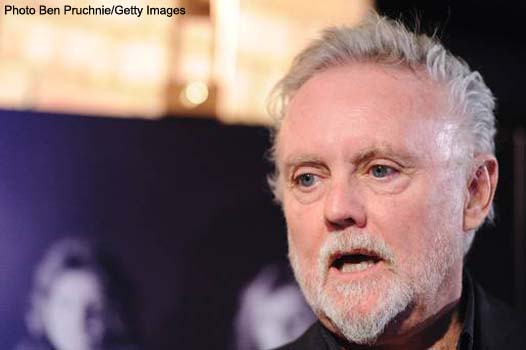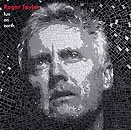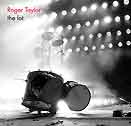Wonderful interview with Roger Taylor: covering subjects as diverse as Slane Castle, Radio Gaga, recollections of Freddie the diploma, Live Aid, feverish work pace towards end of his recording life. Fascinating.
IRISH INDEPENDENT
13 December 2013 by Ed Power
Roger Taylor The drummer who penned Radio Ga Ga, Roger Taylor talks to Ed Power about the glory days with Queen, his new LP and that Slane gig

IT would be nice to report Roger Taylor has warm memories of Queen’s 1986 Slane Castle concert — but it would be untrue. “That one was pretty hairy, from what I remember,” says the group’s drummer and co-songwriter, somewhere between a chuckle and a shudder. “I mean really hairy. The size of the crowd was incredible. There was so much mud and drunkenness. Freddie stopped the show at one point. People had been there for hours and dehydrated from drinking. Well, it’s rock ‘n’ roll, isn’t it?”
Alongside Dave Grohl of Nirvana and Foo Fighters and Metallica’s Lars Ulrich, Taylor belongs to an exclusive club: drummers whom court interest. Then, he was never merely Queen’s percussionist — a talented composer and arranger, several of the band’s biggest hits originated with Taylor, most notably Radio Ga Ga and A Kind of Magic. However, convincing the rest of Queen that his music deserved to be taken seriously wasn’t always easy he attests. Freddie Mercury and co shared the wider prejudice against uppity stickmen.
“They needed some persuading,” says Taylor. “Then some individuals required convincing that the drums are actually a proper instrument in the first place. They are. In fact, they’re a lot f***ing harder to learn than others.”
When he came to Queen with Radio Ga Ga, Taylor suspected he had a potential uber-hit. He played the tune, everyone sat in silence. They sensed it too: Radio Ga Ga was going to be one of the tracks that defined Queen for the ages.
“I thought it had certain quality, I undoubtedly did,” says Taylor. “I felt we had hit on something. And Freddie, especially, got that immediately. It was self-evident it was going to be the first single. It was assumed we wrote the singles first. We didn’t — we wrote the entire album, then worked out which one was going to be the single.”
Why, 22 years after Mercury’s death from AIDS, is Taylor (64) consorting with the press? Because he has just released a riotously silly and enjoyable solo record, the fruit of a decade of labour. With cameos from Bob Geldof and Jeff Beck, Fun On Earth is more than mere rock star indulgence and is certainly worth Queen fans’ attention. Nevertheless, it doesn’t seem to occupy much of Taylor’s thoughts this afternoon. He is far happier discussing Queen’s glory years.
“I’m very proud of our canon, or legacy — whatever you might call it,” he says. “When We Will Rock You, the musical, launched, I was amazed at how successful it was. It attracted a new generation of fans. Freddie would have loved it. He was quite into that sort of stuff.”
Mercury died on November 24, 1991. The final year of his life was marked by relentless activity as he set down the songs that would posthumously comprise Queen’s Made In Heaven album.
“In periods of stress you pull together, don’t you?” says Taylor of those final, feverish months of studio activity. “From somewhere you find the strength. We all sort of pulled together. Freddie’s main wish was to keep working. It kept his mind off what was happening. “
One of rock’s most iconic frontman, when Mercury died the world grieved. But Queen hadn’t simply lost a leader. They’d lost a friend.
“It took about five years until we were properly over Freddie’s passing,” says Taylor. “You learn to live with it. Everyone suffers loss in their lives, don’t they? We do still miss him of course. Back then, I don’t think we realised how good a frontman he was. With the passing of years, we have recognised that increasingly. There aren’t many good frontman around anymore. Where are they? I can’t think of a really young band with a great front person.”
In addition to his charisma as a singer, Mercury was an instinctive peace-maker, says Taylor. He was the one who smoothed over disagreements. Without him, it is questionable whether they would have endured as long as they did.
“Freddie was very much able to ride the neutral wave,” says the drummer. “We all respected his views because he was such a great songwriter. It was his idea that we share all the credits. It was decided all the songs would be attributed equally to Queen. That immediately got rid of the arguments. That was a fantastic, democratic notion.”
The only time tensions flared was if an outsider was involved, as was the case the week David Bowie swung by Queen’s Lake Geneva studio in 1983 to collaborate on what would become Under Pressure. Though the final song made the effort worthwhile, it was known that Queen and Bowie did not always see eye to eye.
“I think there was [conflict] between David and Brian [May, Queen guitarist],” remembers Taylor. “There were some fairly headstrong people involved.”
Received wisdom has it that Queen were all washed up and slouched towards their dotage when Geldof invited them to appear at the 1985 Live Aid concert at Wembley Stadium. On for just a little over 15 minutes, they turned in a blockbuster performance — that over-shoulder shot of Freddie Mercury leading the 80,000 audience through the hand-clap breakdown on Radio Ga Ga, in particular, is a celebrated piece of rock iconography. In the moment Queen sensed something special was happening. However, they had little inkling as to just how much of a Live Aid bump they would receive.
“We had gone through a slightly jaded period. Live Aid had quite a galvanising effect. We had a huge resurgence afterwards. We weren’t expecting that. I mean, we went on with no soundcheck. It was daylight. The crowd was not necessarily ‘our’ audience. At one point I looked out and thought ‘oh, it’s going well’. Only later did we realise it had gone VERY well.”
Queen have been in the news recently, with actor Sacha Baron Cohen exiting a planned Freddie Mercury biopic. It was suggested that Taylor and May had issues with Baron Cohen playing the singer, feeling the Borat star would bring too much comedy baggage. The truth, says Taylor, is more complex.
“I don’t think Freddie is exactly hard to cast,” he says. “It’s just that we probably had the wrong person. I do have to stress that Brian and I are not producers. We are musical directors. I’m interfering as little as possible. If they ask for our advice we say what we think. It’s as simple as that.”

“Fun On Earth” is out now
(Available on Amazon)

Also Roger Taylor’s complete works: ‘The Lot’
(Available on Amazon}